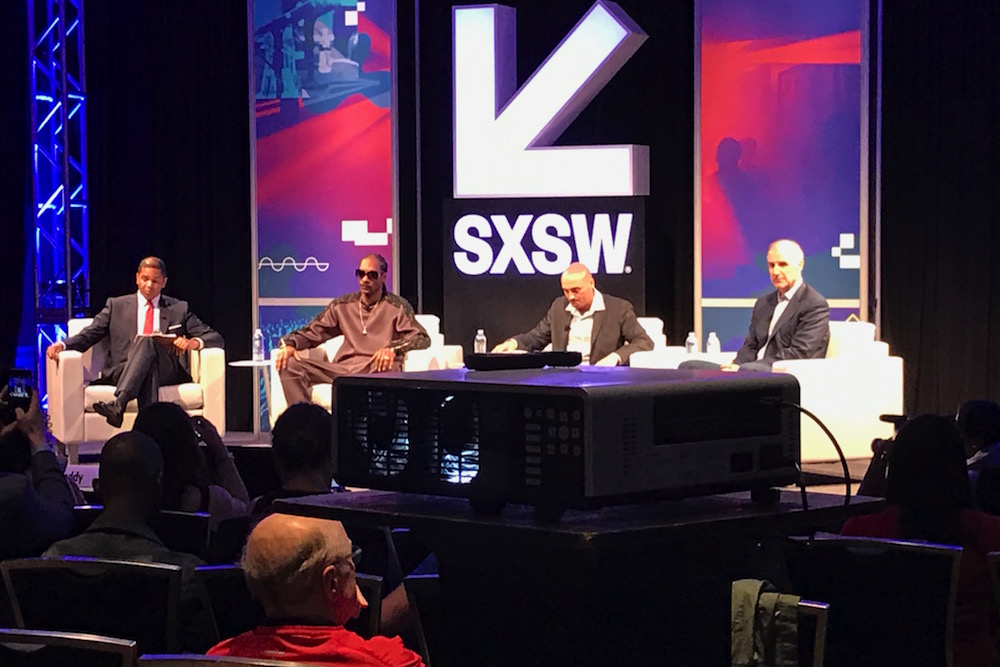On Saturday at SXSW, Snoop Dogg sat on a panel alongside Extravagant Records founder Weldon Angelos, Koch Industries’ Mark Holden, and Charles Koch Institute’s senior research fellow Vikrant Reddy to talk criminal justice reform. At one point, Holden—the panel’s well-meaning fogey—expressed his belief that politicians will come on the right side of history when reform bills are reintroduced. Even the capricious President Donald Trump will come to his senses.
“If he wants to help people—and he talked about helping people, African-Americans and Latinos—this is something to reach out to them and show that he really does care,” Holden said. “Once he understands what are in these bills, there’s no way that anybody who’s reasonable would oppose them.” Snoop wasn’t buying it, though: “You just said nobody reasonable.”
The conversation, which lasted a little under an hour, came days after Snoop sparked a right-wing controversy for showing a clown that looked like Donald Trump being killed in the video for his remix of BADBADNOTGOOD‘s “Lavender.” In the aftermath, Trump slandered him on Twitter, as did Mike Huckabee. Sen. Marco Rubio whined about it to TMZ, and Bow Wow made it to the New York Times. Snoop responded by claiming on Instagram that he had “nothing to say” to Donald Trump.
That was also true during the panel discussion. Trump became a periphery villain as Snoop—the only panelist whose name preceded him—made it clear that criminal justice reform is a personal issue. When the conversation turned to the poor treatment of mental health in prison, Snoop spoke about his younger brother who went to prison when he was 17. To combat “a couple of mental issues,” he was given Thorazine, an anti-psychotic medication with neurological side effects.
“We would go to visit him and he would just get slower and slower,” Snoop said. “It just got to a point where he couldn’t even communicate with us anymore.”
The conversation also focused on the system’s Draconian treatment of drug offenses, a means the Trump Administration appears to be in favor of increasing. The presence of Angelos—who was sentenced originally sentenced to 55 years in prison in 2004 for selling almost $1,000 of marijuana before being released last year following public outcry—made it clear how close Snoop Dogg was to instead being an inmate named Cordozar Calvin Broadus, Jr. The rapper-turned-philanthropist recounted how, before his career took off, he received a joint suspension sentence for selling cocaine. The deal meant he’d serve a few months in a county jail and then serve a few years of probation, avoiding the penitentiary if he avoided trouble. However, he failed a drug test after his aunt gave him “codeine or something” to alleviate a toothache.
Snoop was saved by the clemency of his probation officer: “He said, ‘I see you’re trying to do the right thing. Instead of me sending you to the penitentiary, I’ma send you to the county for four months. When you get out, if you do good by me, I’ll let you off probation.’ I went for those four months, got out, and got a record deal.”
“He actually saved my life,” Snoop said.





